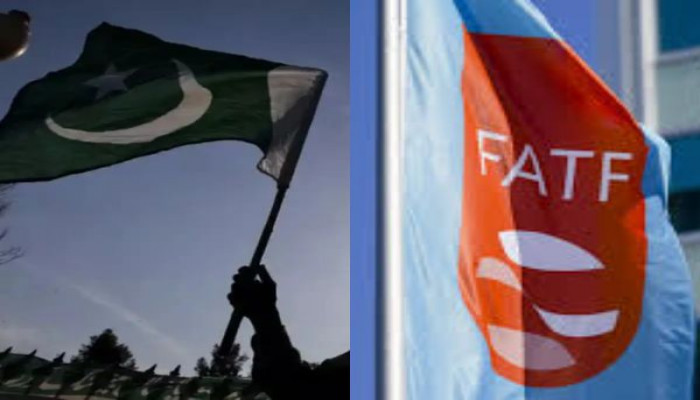Pakistan caught red-handed again: FATF's new report exposes the dirty tricks of Islamabad
- In Reports
- 06:31 PM, Jun 21, 2025
- Myind Staff
The Financial Action Task Force (FATF) reported that Indian authorities intercepted a shipment in 2020. The shipment contained missile-related equipment that was headed for Karachi. The seizure exposed Pakistan’s use of mis-declared dual-use goods linked to its ballistic missile programme. FATF’s latest report said the consignment, which was traced to Islamabad’s National Development Complex, had been disguised in shipping documents. The report described this as part of Pakistan’s continuing attempts to bypass international controls and promote proliferation.
The FATF report said Indian investigators stopped a cargo ship carrying autoclaves. These were specialised equipment used for high-energy materials and missile motor components. The shipment had been falsely declared in its documentation. The Bill of Lading submitted with the consignment showed a direct connection between the importing party and Pakistan’s National Development Complex. This facility is known for developing long-range ballistic missiles. The Times of India first reported this detail.
FATF noted that dual-use goods can support missile and weapons development programmes when exported without proper declarations. The watchdog cited the Pakistan-linked case as a key example of how weak export controls and misdeclarations can lead to violations of international norms.
The case also reinforced FATF’s growing concerns around the global trade in proliferation-sensitive goods. The watchdog said this incident showed how state-linked entities may try to bypass regulations by disguising the nature and end use of sensitive materials.
In its broader statement, FATF also referred to a terror attack in Pahalgam, Kashmir, on April 22, which resulted in the deaths of 26 people. “The April 22 attack in Pahalgam, Kashmir, which claimed 26 lives, would not have been possible without financial support,” the FATF said in its report. It added that a detailed document covering terror financing cases — including those linked to state-sponsored actors — would be released soon.
Sources told PTI that the FATF’s decision to publicly mention the Kashmir incident marked a rare but clear signal from the international body. Indian officials interpreted the move as growing recognition of the financial networks behind cross-border terror attacks. According to Indian sources, the Pahalgam attack was carried out by militants who were trained in Pakistan.
India’s National Risk Assessment identified terrorism financing from state actors — with Pakistan prominently named — as a significant national security threat. The FATF currently monitors 24 countries on its “grey list” for strategic gaps in anti-money laundering and counter-terrorism finance systems. Countries under grey-listing face increased scrutiny from international financial institutions and risk-reduced investor confidence.
In this context, Indian authorities were preparing a formal dossier highlighting Pakistan’s compliance failures. The document was expected to be presented during the Asia Pacific Group meeting on August 25 and the FATF plenary session on October 20. Officials confirmed that India would push for Pakistan’s re-inclusion in the grey list, citing new evidence.
FATF’s latest focus on proliferation threats also brought back attention to earlier instances of nuclear material trafficking tied to Pakistan. One of the most significant of these was the network operated by Abdul Qadeer Khan, widely known as the “father of Pakistan’s nuclear bomb.”
As reported by The Times of India, Khan began acquiring uranium enrichment technology from Europe in the 1970s. He later used this knowledge to help build Pakistan’s nuclear programme and exported the same expertise to Iran, North Korea and Libya through a global black-market network. “He reportedly earned $100 million from Libya alone,” the report said.
Authorities exposed the AQ Khan network in 2003 and found that it had operated through a complex web of intermediaries across more than 20 countries. The fallout from the operation led to years of global concern about nuclear proliferation risks and raised serious questions about oversight and control within Pakistan’s strategic institutions.







Comments